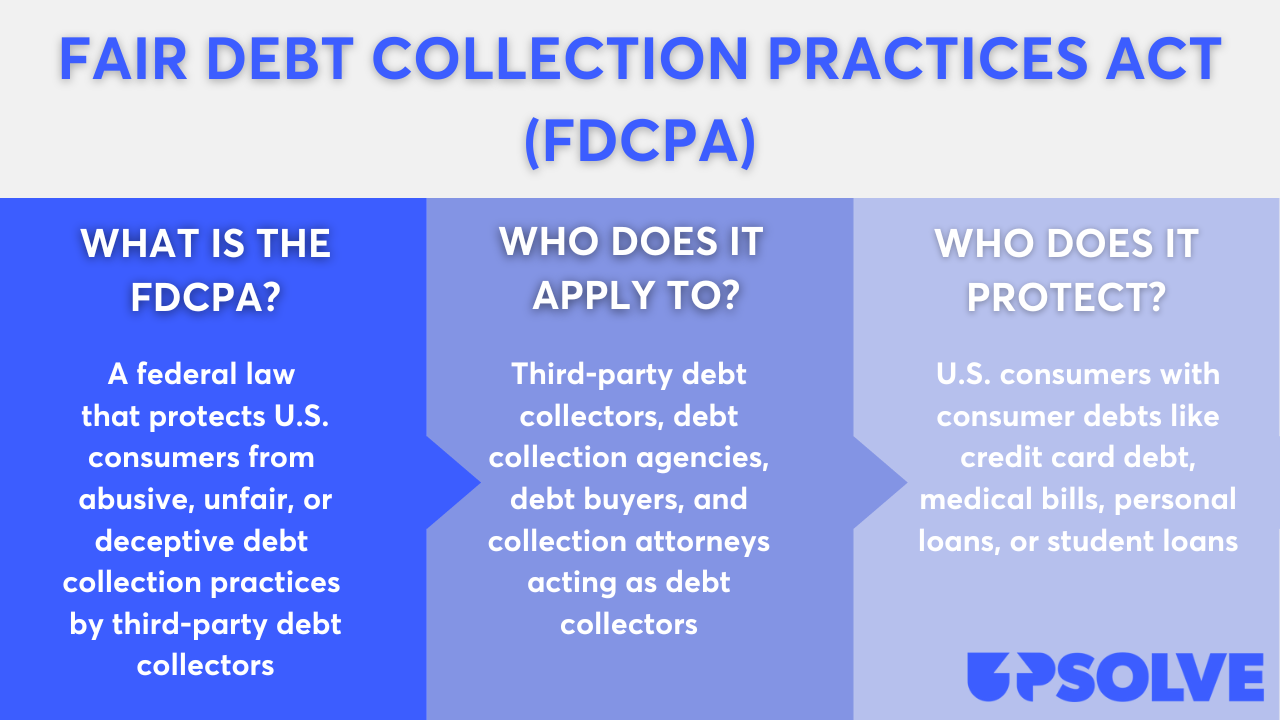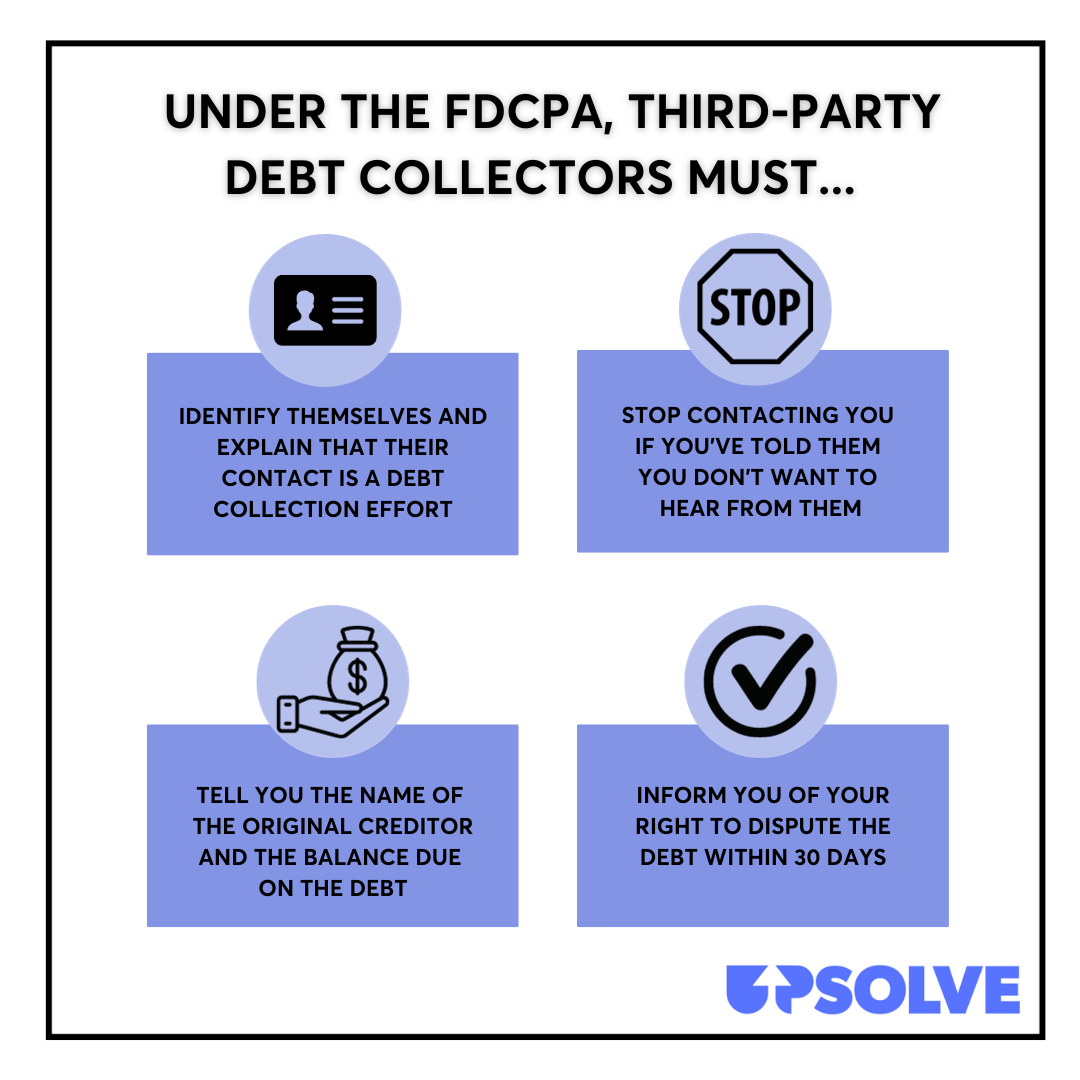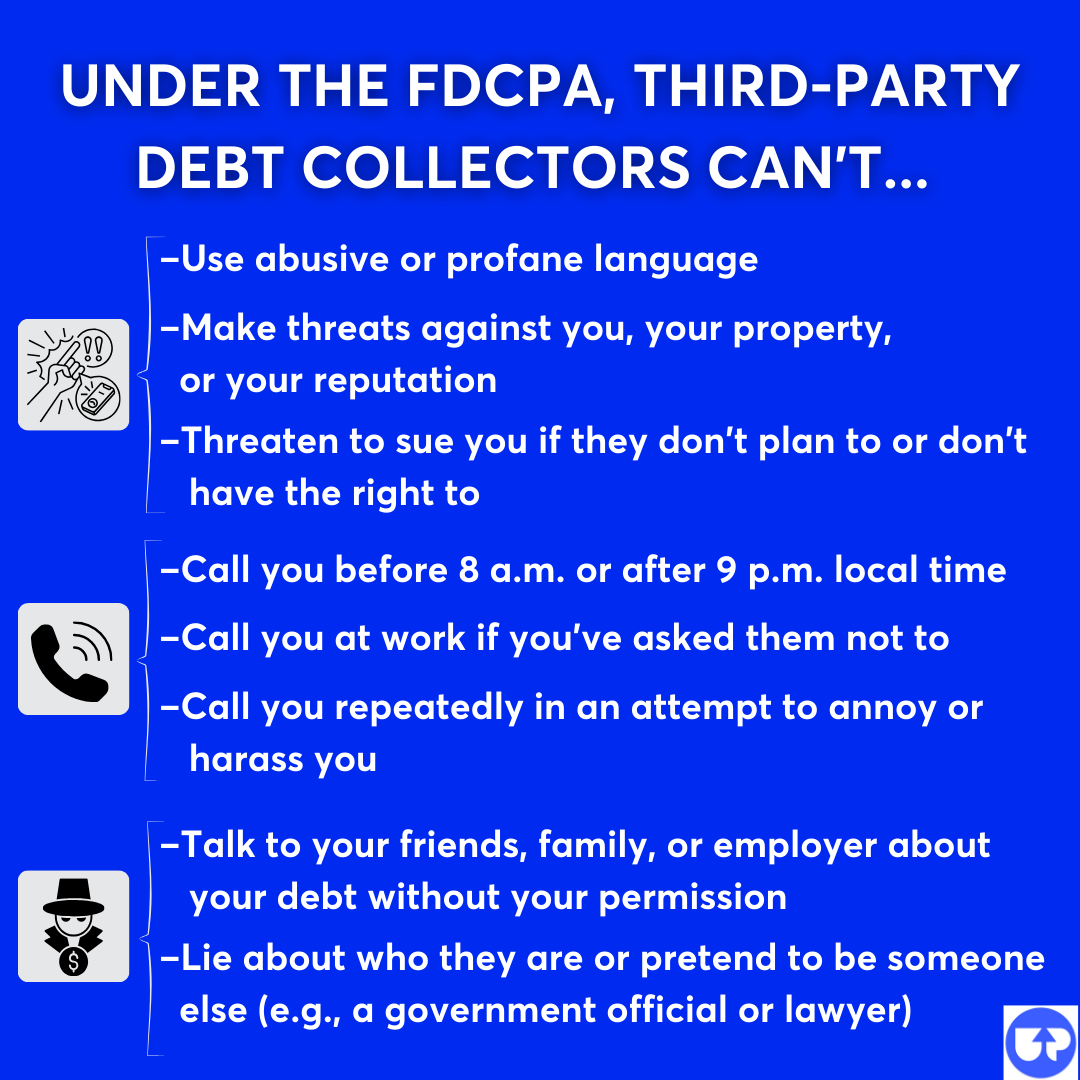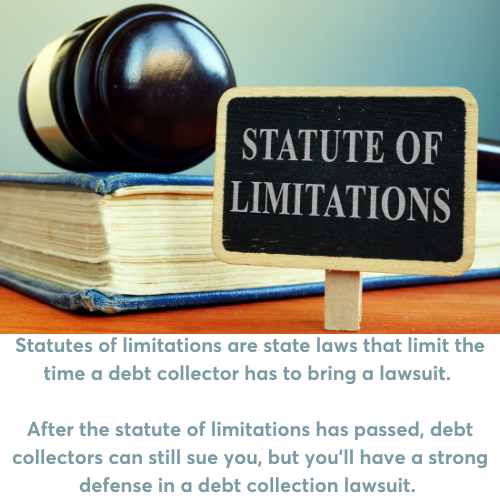Your Guide to Minnesota’s Debt Collection Laws
Upsolve is a nonprofit that helps you eliminate your debt with our free bankruptcy filing tool. Think TurboTax for bankruptcy. You could be debt-free in as little as 4 months. Featured in Forbes 4x and funded by institutions like Harvard University — so we’ll never ask you for a credit card. See if you qualify →
Minnesota has a state law that regulates third-party debt collection agencies and debt buyers. The law aims to prevent debt collectors from engaging in harassment, threats, deception, and other misleading behavior when trying to collect a debt from you. This state law supplements the federal Fair Debt Collection Practices Act (FDCPA), which has a similar aim and even broader prohibitions.
The statute of limitations on credit card debt and medical bills in Minnesota is six years.
Written by Upsolve Team.
Updated September 16, 2025
Table of Contents
What Are the Debt Collection Laws in Minnesota?
Minnesota has a law that regulates debt collectors, debt buyers, and debt collection agencies. This law doesn’t have a formal name, but it’s outlined in Chapter 332.37 of the 2022 Minnesota Statutes.
Under this law, debt collectors can’t:
Threaten wage garnishment or legal action unless they’ve actually hired a lawyer
Mislead or deceive you by sending forms that look like official legal documents
Publish or advertise your debt information
Pretend to be a government official or representative
Lead you to believe that you won’t be able to get healthcare in an emergency situation because of your debt
Collect additional interest, fees, charges, or expenses that aren’t authorized in the debt contract
File a lawsuit against you if the statute of limitations has expired on your debt
Additionally, debt collectors must:
Provide you with the full name of the collection agency as it appears on the state license
Return any overpayments to you
Include a disclosure on written correspondence that says: "This collection agency is licensed by the Minnesota Department of Commerce" or "This debt buyer is licensed by the Minnesota Department of Commerce"
Note that this law doesn’t usually apply to the original creditor unless they contact you posing as a third-party collection agency.
Minnesotans are also protected by the federal Fair Debt Collection Practices Act (FDCPA).
How Does the FDCPA Protect Minnesotans?
Minnesota’s debt collection law has some similarities to the federal FDCPA. Both aim to regulate third-party debt collectors and prevent bad behavior like harassment, intimidation, or deception.
Here’s a basic overview of the FDCPA:

The FDCPA sets out certain requirements for third-party debt collectors.

The FDCPA also has an extensive list of prohibitions.

If you want to learn more about this law, you can read Upsolve’s Guide to the FDCPA.
What Can You Do if a Debt Collector Breaks the Law in Minnesota?
If a debt collector breaks the state law, you can file an online complaint with the Minnesota Commerce Department. You can also report the debt collector to the Consumer Financial Protection Bureau (CFPB). The CFPB works alongside the Federal Trade Commission to enforce the FDCPA.
Some states’ laws allow individuals to sue debt collectors for damages if they violate the law. Minnesota doesn’t have a provision for this. But if the debt collector’s actions violated state law, they likely violated the federal FDCPA as well.
If so, you can sue the debt collector for damages in a federal court. If you win the case, you can get actual damages (for any monetary loss you suffered as a result of their behavior) and statutory damages of up to $1,000 for them breaking the law. You can also ask to have your attorney fees covered as part of the damages.
Also, bear in mind: If you get sued by a debt collector and you can prove they violated the law when contacting you to collect the debt, this can serve as a strong affirmative defense in the lawsuit. If you’re successful in raising the defense, you may be able to get the case dismissed. To learn more, read our guide to responding to debt lawsuits in Minnesota.
Upsolve Member Experiences
4,358+ Members OnlineWhat Is the Statute of Limitations for Debt Collection in Minnesota?
Each state has a statute of limitations for debt. These laws limit how much time a debt collector has to file a lawsuit against you to collect a debt.

The statute of limitations for the most common types of consumer debt — credit cards and medical bills — is six years. The statute of limitations for auto loans or other breach of contracts for sale is four years. If a debt collector gets a judgment against you in court, the statute of limitations is much longer at 10 years.
Though debt collectors and creditors are not supposed to file a lawsuit against you if the statute of limitations has expired, they may still try. If they do, it’s crucial for you to respond to the lawsuit and raise the statute of limitations as a defense. This can help you get the case dismissed.
What Can Debt Collectors Do To Collect Debt in Minnesota?
While debt collectors are prohibited from harassing or misleading you when trying to collect a debt, they can still call you and contact you by mail and even on your social media accounts. If these attempts to reach you aren’t successful, you might find yourself facing the debt collector in court.
It’s becoming increasingly common for debt collectors to sue people. Since about 70% of debt lawsuits go unanswered, debt collectors have learned they can get an easy win. And when they win, they can get a court order to take money directly from your paycheck or bank account. If you own property, they can apply for a lien against it.
The most popular of these methods is wage garnishment. While the amount a collector can take from your paycheck is limited by law, wage garnishment can still be very stressful as it reduces your take-home pay until the debt is paid off.
If you get sued for a debt, don’t hand the debt collector an easy win. Respond to the lawsuit and make them prove that you actually owe what they say you do and they have the legal right to collect the debt. Responding to the lawsuit is as easy as filling out some paperwork.
📌 If you want help responding to the debt lawsuit but you can't afford a lawyer, consider using SoloSuit, a trusted Upsolve partner. SoloSuit has helped 280,000 respond to debt lawsuits and settle debts for less. They have a 100% money-back guarantee, and can make the response process less stressful and quicker!
Can Debt Collectors Repossess My Car in Minnesota?
Yes, debt collectors can repossess your car, truck, motorcycle, or ATV after just one missed payment. Though often they wait longer than that. Debt collectors do not have to get a court order to repossess your car in Minnesota.
For full details on this practice, see Upsolve’s Guide to Repossession Laws in Minnesota.
Need Help With Debt Relief? Here Are Some Options
As prices have gone up, consumer debt, too, has been on the rise in 2023. Once you get in debt, it can be hard to get ahead. High interest rates can increase your outstanding debt fast. If you’re struggling to manage your debt, don’t be afraid to ask for support.
One free resource is consumer credit counseling. Credit counselors are trained to look at your debt and finances with you and explain your debt-relief options. Some options they may suggest include:
A debt management plan where you pay a small monthly fee for the counselor to manage your debt repayment and negotiate your interest rates on your behalf
Debt consolidation, which allows you to streamline your debt and potentially decrease your interest rate or lower your monthly payments
Bankruptcy, which will put an immediate stop to all collection efforts (including debt lawsuits) and can give you a fresh start financially
If you decide that bankruptcy is the right option for you, Upsolve may be able to file your case for free. Upsolve is a nonprofit that’s helped 300,000 people just like you get a fresh start by wiping out $700 million in debt. See if you’re eligible to use our free tool.
If you need legal help to deal with a debt collector who is harassing you and you can’t afford an attorney, check out the Find a Lawyer resource from the Minnesota Judicial Branch.
